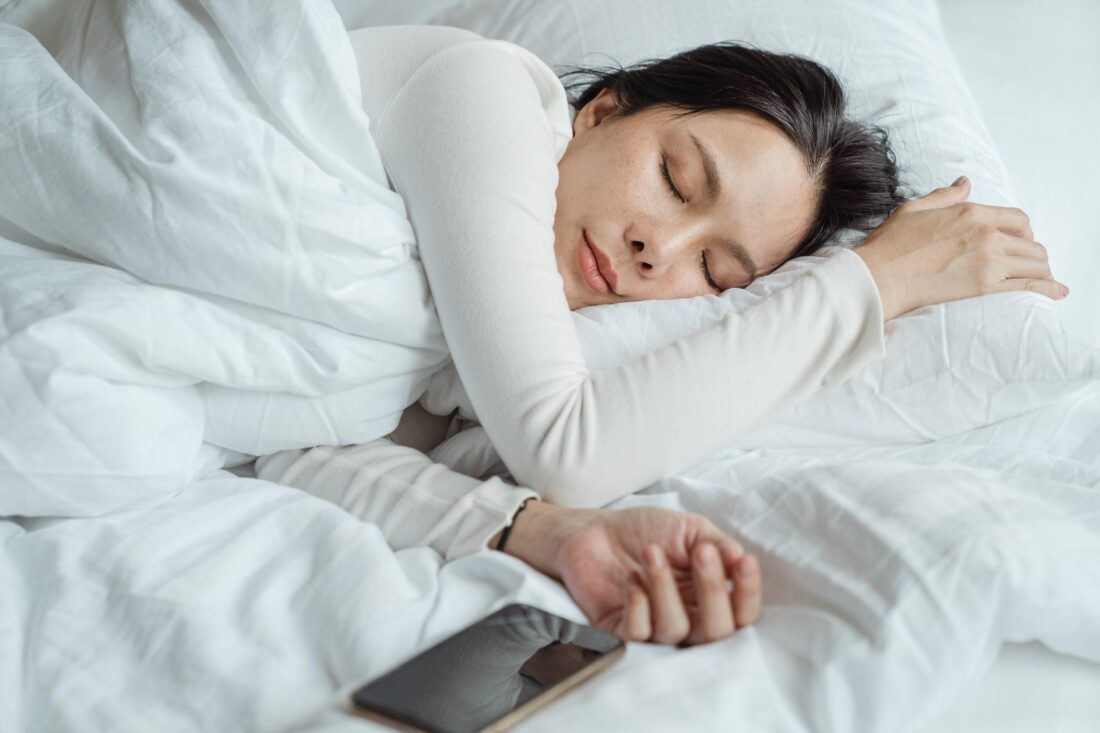Most people don’t need a biology textbook to remind them of the importance of sleep. If you don’t get enough sleep, you already know. Unfortunately, this predicament is relatively common. The Centers for Disease Control and Prevention reports that 35.2 percent of adults in the U.S. get less than the recommended seven hours of sleep.
If you identify with this portion of the population, you may benefit from assessing your lifestyle habits and making changes to improve your daily sleep duration and quality. The following tips can help you do just that.
1. Find Your Natural Sleep Cycle
Your body’s natural daily rhythms are controlled by the brain, determining when you fall asleep, and when you wake up. Sleep has different stages, and each has a purpose that keeps the body healthy. To sleep better, you need to understand your body’s circadian rhythm and how it responds to your behavioral patterns.
If your biological clock is off, you can reset it by following a structured sleep routine. By going to sleep and waking up at the same time every day, you can send your body signals, prompting your circadian rhythm to readjust.
2. Get the Right Light
Aside from your sleep schedule, light plays a vital role in dictating your circadian rhythm. The brain interprets different lights as different signals to stay awake or sleep. The blue light signals the brain to stay awake, even when the body is tired. So, watching a screen at bedtime can make it difficult to fall asleep.
3. Don’t Binge Before Bed
Avoid eating a big meal just before bedtime. Take the biggest meal of the day by afternoon, and eat an evening meal of fewer than 500 calories in the evening to curb the midnight hunger pangs. Why? A heavy meal can make you feel drowsy quickly, but you can’t digest the food properly if you sleep immediately. If your body is still working hard to metabolize food, you’ll have difficulty falling asleep and hitting the deeper stages of rest.
4. Remove the Booze for Some Zzzs
At least 20 percent of Americans believe that alcohol helps them sleep. But the truth is even a moderate amount of drinking can interfere with your sleep cycle. That doesn’t mean you need to abstain from alcohol entirely; you just have to manage your drinking habits by limiting your alcohol intake to two to three times a week.
5. Getting Back to Sleep
Even if you fall asleep quickly, there’s always the possibility of noise or movement waking you up. What do you do then? To fall back asleep fast, avoid the temptation to check the time. You should stay away from your smartphone or turn your alarm clock towards the wall to prevent seeing the time and calculating how much sleep time you have left. Doing so can cause stress, making it harder to float back into your REM cycle.
6. Find the Right Mattress For You
To sleep peacefully, you need a mattress that’s comfortable yet supportive. Which mattresses type suits you best will depend on a few different factors, mainly your weight, sleep position, personal preferences for optimal comfort, and history of bone, joint, or muscle problems.
If you want a bed with the standard thickness, start researching the best 12 inch mattress options based on your unique needs. You’ll have to choose the following:
- Softness or firmness, which dictates the level of support you receive, the pressure points on your body, and weight distribution
- The materials used, which determines comfort level and durability and also contribute to softness versus firmness. Most mattress suppliers offer air foam, memory foam, latex, innerspring, and hybrid options
- Temperature control
- Durability
- Adjustability
Sleep Tight by Sleeping Right
A good night’s sleep keeps you fresh and full of energy throughout the day. If you’re finding it difficult to sleep, analyze your sleep routine, and try to identify and eliminate the cause of discomfort. If your sleeping issues persist, speak to your doctor to rule out any underlying ailments.

No Comments